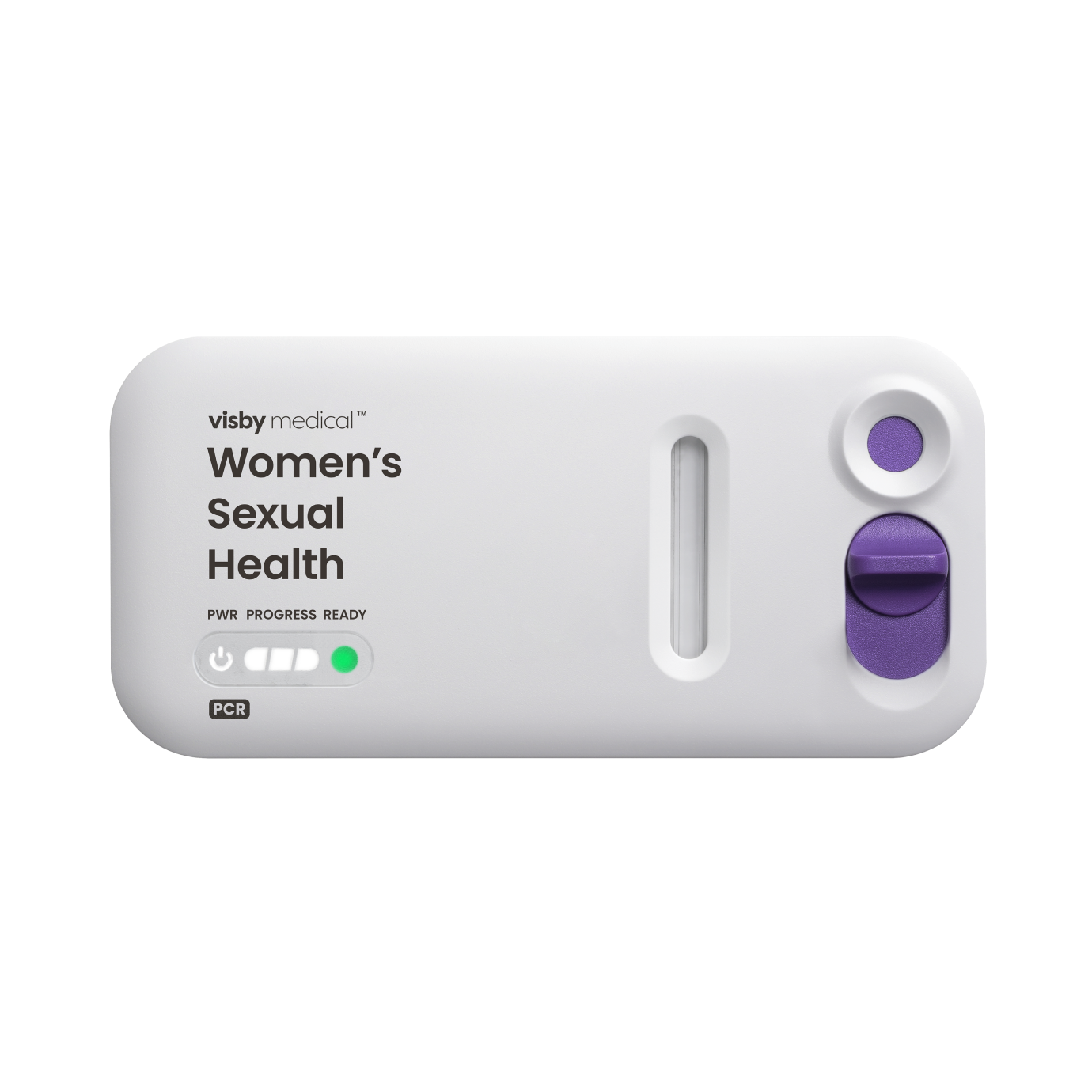
Written on June 28, 2023 by Sendra Yang, PharmD, MBA. To give you technically accurate, evidence-based information, content published on the Everlywell blog is reviewed by credentialed professionals with expertise in medical and bioscience fields.
Table of contents
- About Insulin
- What Is Insulin Resistance?
- Insulin Resistance and Weight Gain
- Difference Between Insulin Resistance and Diabetes
- Importance of Losing Weight in Insulin Resistance, Obesity, and Diabetes
- Reversing Insulin Resistance and Preventing Weight Gain
- Weight Management and Overall Health with Everlywell Telehealth
- Related Content
You are not alone if you are trying to lose weight. Almost 50% of American adults try to lose weight annually.[1] More women try to lose weight than men, and adults with increased weight will more frequently attempt to lose it.[1] Losing weight has probably crossed your mind, especially if you struggle with being overweight or obese. Obesity is a complex chronic disease occurring in people whose weight is heavier than what is considered healthy for their height.[2] The obesity prevalence in the United States currently stands at 42%.[3]
Many factors contribute to weight gain and obesity in adults, including eating patterns, physical activity levels, and sleep routines.[2] Other things that can influence weight gain include genetics and medications. Insulin resistance has also been looked at as a potential cause of gaining extra weight.
About Insulin
Naturally occurring insulin is made in the body by beta cells in the pancreas to help regulate blood sugar levels.[4] Insulin is a peptide hormone and works by binding to the insulin receptors on cell membranes with high insulin receptor densities on liver and fat cells. When the insulin hormone binds to its receptor, sugar or glucose is transported from the blood into the cell to use for energy, thus reducing the blood glucose levels in the body.[4,5] Insulin has the following additional effects in different cells [4]:
- In liver cells, insulin allows the body to store glucose as glycogen and limits the breakdown of fats and proteins for glucose.
- In fat cells, insulin supports the process of fat storage from glucose and inhibits the breakdown of fat.
- In muscle cells, insulin promotes glycogen storage and protein synthesis, along with preventing the breakdown of proteins.
- In pancreatic beta cells, insulin inhibits glucagon release. The presence of glucagon stimulates the liver to release glucose into the blood.
- In brain cells, insulin helps to regulate appetite.
What Is Insulin Resistance?
When the cells in your body no longer respond well to insulin, it is known as insulin resistance.[5,6] As mentioned earlier, insulin is required for cells to uptake glucose and use it for energy or store it for later use. When glucose is transported into your cells, this helps to decrease the glucose levels in your bloodstream and communicates to your pancreas to stop making and releasing more insulin. Insulin resistance occurs when your liver, fat, and muscle cells can no longer appropriately respond to insulin and take up glucose from the blood into the cells. As a result, the pancreas continues to make more insulin and release it into the bloodstream. Insulin resistance is also referred to as impaired insulin sensitivity.
The exact cause of insulin resistance remains unclear.[6,7] However, having a family history of type 2 diabetes, being overweight with excess body fat around the belly area, and limited physical activity can all contribute to your chances of developing insulin resistance. People who are not overweight can still get insulin resistance. No one test can determine if you have insulin resistance.[5,7] Only your healthcare provider can determine if you have insulin resistance by testing various levels of blood glucose, triglycerides, and cholesterols.[7]
Insulin Resistance and Weight Gain
Body fat levels increase as insulin resistance increases.[8] However, answering the question, "Does insulin resistance cause weight gain" is not simple. Exactly how insulin resistance influences or whether it directly causes weight gain is not well established.[8] What has been seen is that insulin resistance, if it progresses, can lead to prediabetes and type 2 diabetes.[5] Furthermore, poor metabolism and glucose control can impact changes in weight and lend themselves to weight gain.[9] Additionally, hormones associated with excess body fat or obesity can contribute to chronic inflammation in the body leading to insulin resistance.[5]
Difference Between Insulin Resistance and Diabetes
If you have insulin resistance, that does not necessarily mean you have diabetes.[5] Everyone has the potential to develop insulin resistance, whether it is temporary or chronic. If left untreated, ongoing insulin resistance can amount to prediabetes and type 2 diabetes. Prediabetic and type 2 diabetic patients will usually experience some level of insulin resistance. Though insulin resistance is more associated with type 2 diabetes, some people with type 1 diabetes also have it with the insulin they inject.
Prediabetes is when blood glucose levels are higher than usual but not raised enough to be considered diabetes.[5] Type 2 diabetes can follow prediabetes without proper management. Type 2 diabetes is the most common type of diabetes. It occurs when the pancreas cannot make enough insulin, or your body cannot use the available insulin efficiently, causing elevated blood glucose levels. Type 1 diabetes is an autoimmune disease where your immune system attacks and destroys the pancreas’s beta cells, leading to decreasing insulin production.
Importance of Losing Weight in Insulin Resistance, Obesity, and Diabetes
If you are insulin resistant or have obesity or diabetes, losing weight will have numerous benefits. Weight loss has the potential to reverse insulin resistance in some cases.[7] A weight loss of 5% to 10% of your body weight can improve blood pressure, blood glucose, and cholesterol levels.[10]
Reversing Insulin Resistance and Preventing Weight Gain
Insulin resistance can be reversed in some cases with lifestyle modifications such as weight loss and exercise.[7] Increasing your physical activity and losing excess weight can contribute to helping make you more sensitive to insulin.[7,12] Additionally, reducing stress, getting an adequate amount of quality sleep, and managing your blood sugar levels can help reverse insulin resistance.[7]
Another way to prevent weight gain involves eating a healthy, nutritious, and well-balanced diet.[10] You can start by identifying food habits that are unhealthy, such as eating too fast, drinking sugary drinks, or recognizing triggers for eating. [13] Replace these unhealthy habits with new ones that are healthier, such as a diet that includes fruits and vegetables, a variety of lean proteins, and limited added sugars, sodium, and saturated or trans fats.[14]
Weight Management and Overall Health with Everlywell Telehealth
Virtual weight loss via the Everlywell Weight Care+ program is a telehealth option where you can speak with a certified clinician regarding questions you have about weight gain and management. You can schedule a meeting from the comfort of your home to discuss your weight goals with a healthcare provider. You can meet regularly one-on-one to get lifestyle recommendations and support. You can also receive a prescription for weight loss if it is appropriate for you.
With Everlywell, you can also get an at-home HbA1c test to check A1c, an indicator of average blood sugar levels for the past three months (with this test, sample collection takes place at home and the sample is then shipped to a lab for analysis). Healthcare providers use this test to help diagnose prediabetes and diabetes.
Related Content
Can Weight Gain Cause Back Pain?
Ozempic® for Type 2 Diabetes: What You Need to Know
Can High Triglycerides Cause Weight Gain?
References
- Data briefs - number 313 - July 2018. Centers for Disease Control and Prevention. https://www.cdc.gov/nchs/products/databriefs/db313.htm. Last reviewed July 12, 2018. Accessed June 8, 2023.
- Causes of obesity. Centers for Disease Control and Prevention. https://www.cdc.gov/obesity/basics/causes.html. Last reviewed March 21, 2022. Accessed June 8, 2023.
- Adult obesity facts. Centers for Disease Control and Prevention. https://www.cdc.gov/obesity/data/adult.html. Last reviewed May 17, 2022. Accessed June 8, 2023.
- Thota S, Akbar A. Insulin. [Updated 2022 Jul 12]. In: StatPearls [Internet]. Treasure Island (FL): StatPearls Publishing; 2023. Available from: https://www.ncbi.nlm.nih.gov/books/NBK560688/
- Insulin resistance: What it is, causes, symptoms & treatment. Cleveland Clinic. https://my.clevelandclinic.org/health/diseases/22206-insulin-resistance. Accessed June 8, 2023.
- Lee SH, Park SY, Choi CS. Insulin resistance: from mechanisms to therapeutic strategies. Diabetes Metab J. 2022;46(1):15-37. doi: 10.4093/dmj.2021.0280.
- Insulin resistance and diabetes. Centers for Disease Control and Prevention. https://www.cdc.gov/diabetes/basics/insulin-resistance.html. Last reviewed June 20, 2022. Accessed June 8, 2023.
- Tucker LA, Tucker JM. Insulin resistance as a predictor of gains in body fat, weight, and abdominal fat in nondiabetic women: a prospective study. Obesity (Silver Spring). 2012;20(7):1503-10. doi: 10.1038/oby.2012.44. https://pubmed.ncbi.nlm.nih.gov/22349734/.
- Chiu CJ, Wray LA, Beverly EA. Relationship of glucose regulation to changes in weight: a systematic review and guide to future research. Diabetes Metab Res Rev. 2010;26(5):323-35. doi: 10.1002/dmrr.1095. https://pubmed.ncbi.nlm.nih.gov/20578206/.
- Losing weight. Centers for Disease Control and Prevention. https://www.cdc.gov/healthyweight/losing_weight/index.html. Last reviewed September 19, 2022. Accessed June 8, 2023.
- Healthy weight. Centers for Disease Control and Prevention. https://www.cdc.gov/diabetes/managing/healthy-weight.html. Last reviewed December 30, 2022. Accessed June 8, 2023.
- Preventing weight gain. Centers for Disease Control and Prevention. https://www.cdc.gov/healthyweight/prevention/index.html. Last reviewed June 3, 2022. Accessed June 8, 2023.
- Improving your eating habits. Centers for Disease Control and Prevention. https://www.cdc.gov/healthyweight/losing_weight/eating_habits.html. Last reviewed June 3, 2022. Accessed June 8, 2023.
- Healthy eating for a healthy weight. Centers for Disease Control and Prevention. https://www.cdc.gov/healthyweight/healthy_eating/index.html. Last reviewed March 8, 2023. Accessed June 8, 2023.
Spotlight on
Featured content

86% of cancers aren't caught by recommended screenings. See what they're missing with a single blood draw.
Save $100 now
Explore Everlywell










